Intel Core i5-14600K review: wait for Meteor Lake
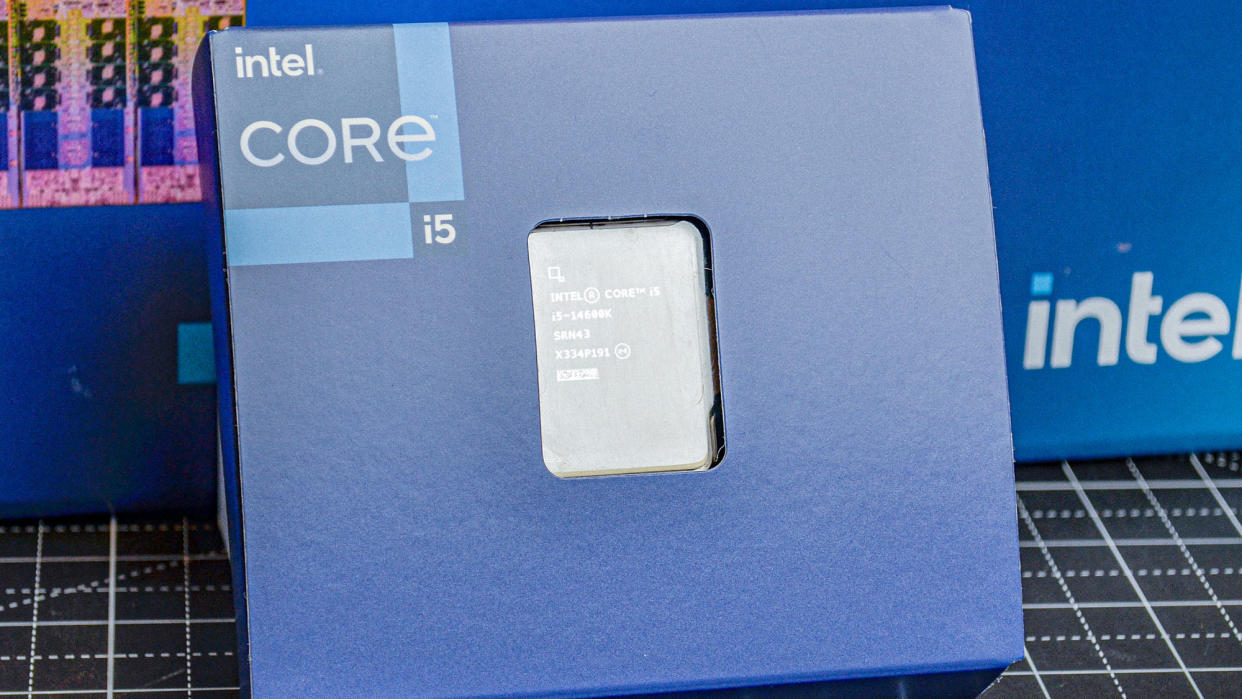
Intel Core i5-14600K: Two-minute review
The Intel Core i5-14600K is not the kind of processor you're really going to want to upgrade to, despite technically offering the best value of any processor I've tested.
First, the good. This is one of the best processor values you're going to find on the market, no matter what happens with the price of its predecessor. Currently, it has the best performance for its $319 price tag (about £255/AU$465), and AMD's competing Ryzen 5 7600X isn't all that close. If you're looking to get the most bang for your buck today, then the Intel Core i5-14600K is it.
In terms of performance, this isn't a bad chip at all; I'd even say it's a great one if you take its predecessor out of the running, which will inevitably happen as its last remaining stock gets bought up. It doesn't have the performance of the Intel Core i7-14700K, but that's a workhorse chip, not the kind that's meant to power the best computers for the home or the best budget gaming PCs as these chips start making their way into prebuilt systems in the next couple of months.
For a family computer or one that's just meant for general, every day use, then this chip is more than capable of handling whatever y'll need it for. It can even handle gaming fairly well thanks to its strong single core performance. So, on paper at least, the Core i5-14600K is the best Intel processor for the mainstream user as far as performance goes.
The real problem with the i5-14600K is that its performance is tragically close to the Core i5-13600K's. And even though the MSRP of the Intel Core i5-13600K is technically higher than that of the Core i5-14600K, it's not going to remain that way for very long at all.
The real problem with the i5-14600K, and one that effectively sinks any reason to buy it, is that its performance is tragically close to the Core i5-13600K's.
As long as the i5-13600K is on sale, it will be the better value, and you really won't even notice a difference between the two chips in terms of day-to day-performance.
That's because there's no difference between the specs of the 14600K vs 13600K, other than a slightly faster turbo clock speed for the 14600K's six performance cores.
While this does translate into some increased performance, it comes at the cost of higher power draw and temperature. During testing, this chip hit a maximum temperature of 101ºC, which is frankly astounding for an i5. And I was using one of the best CPU coolers around, the MSI MAG Coreliquid E360 AIO, which should be more than enough to keep the temperature in check to prevent throttling.
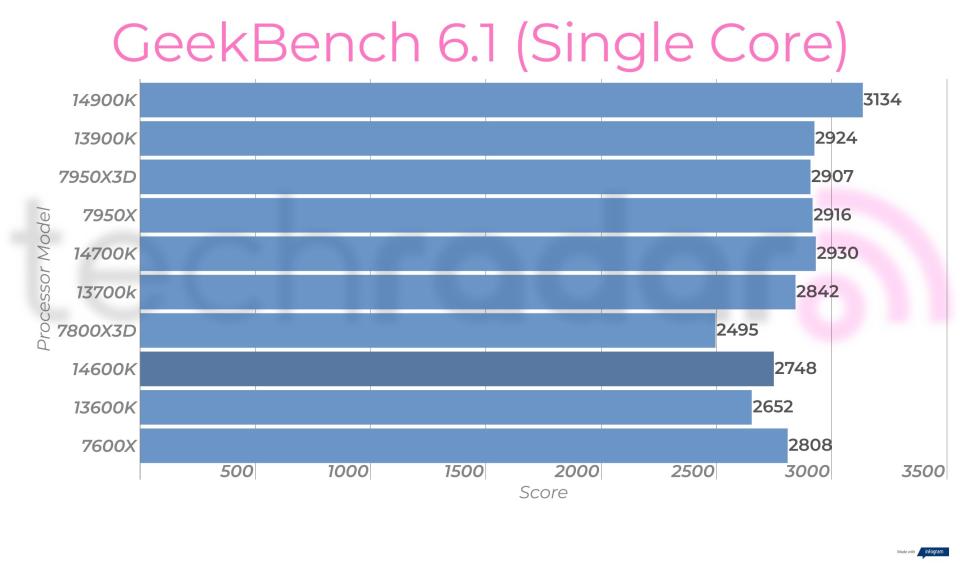
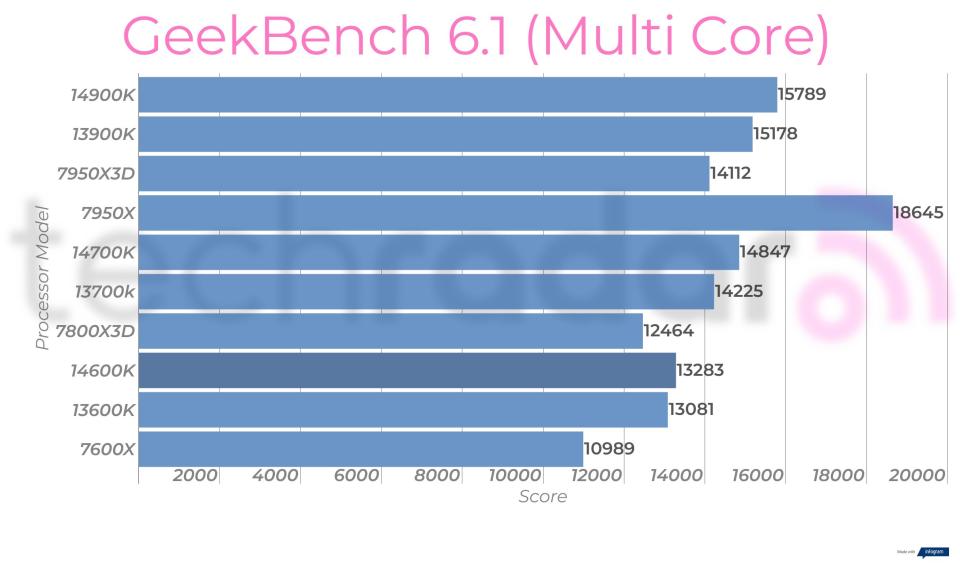
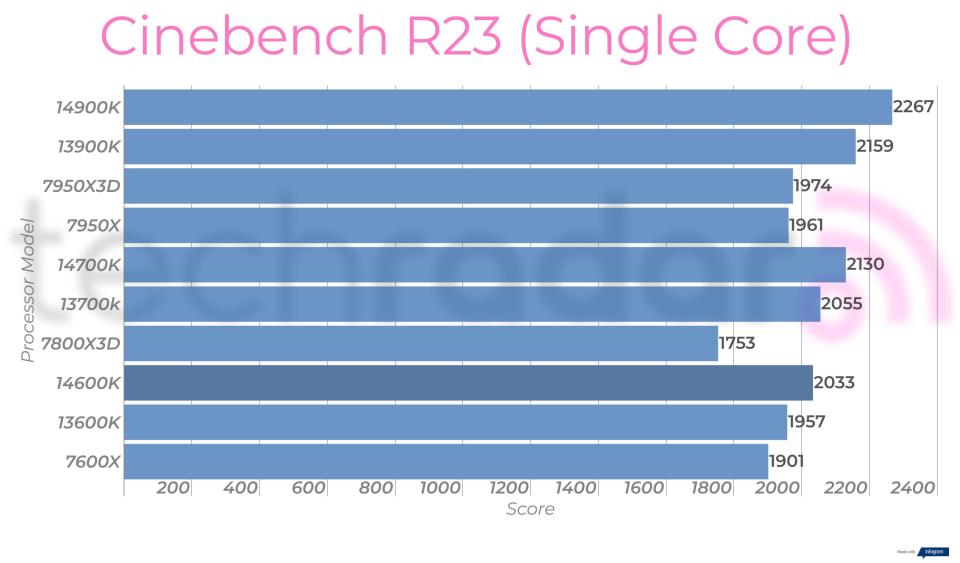
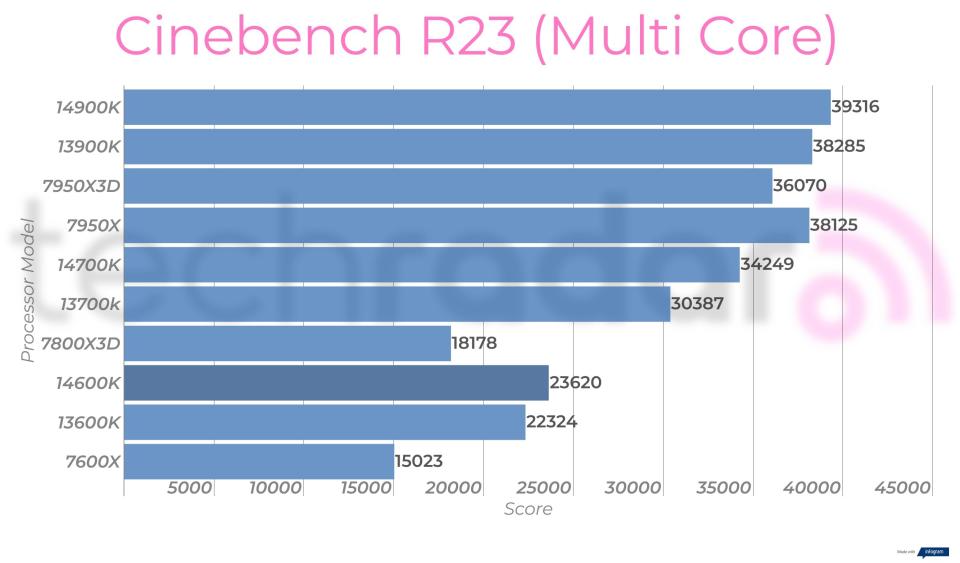
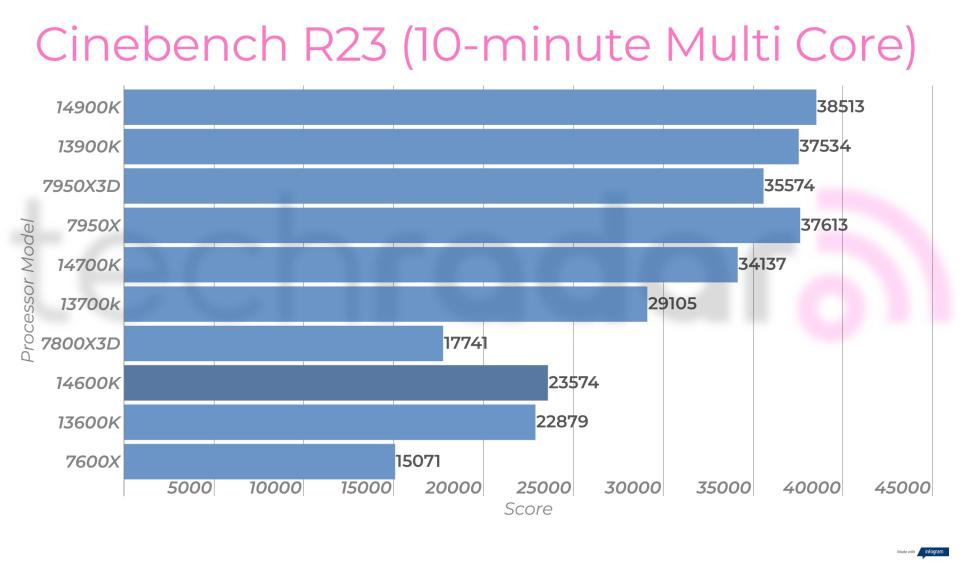
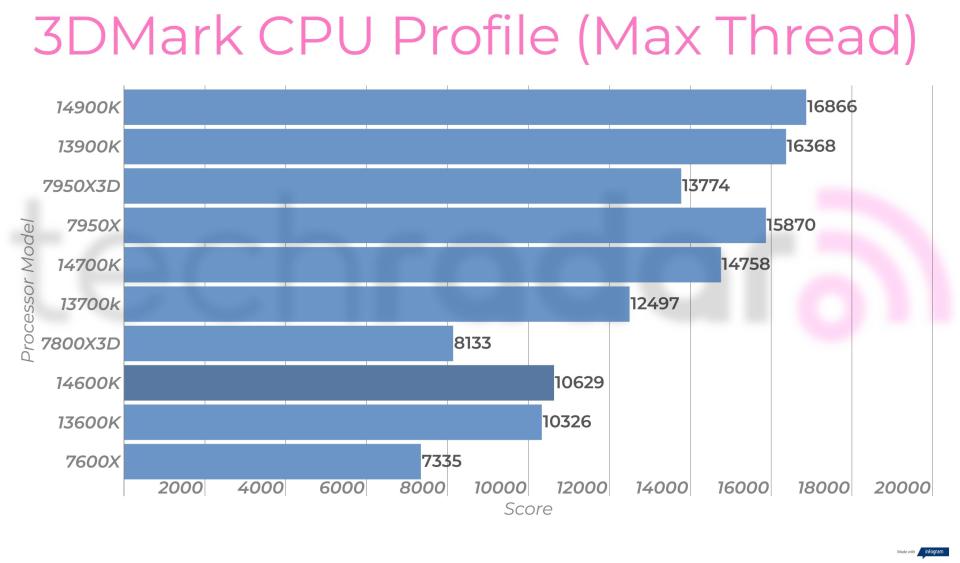

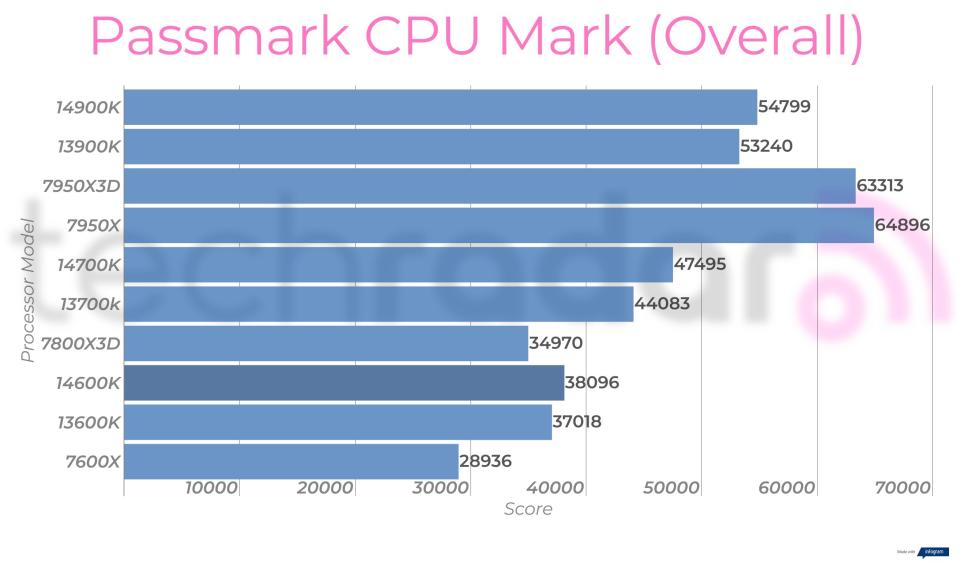
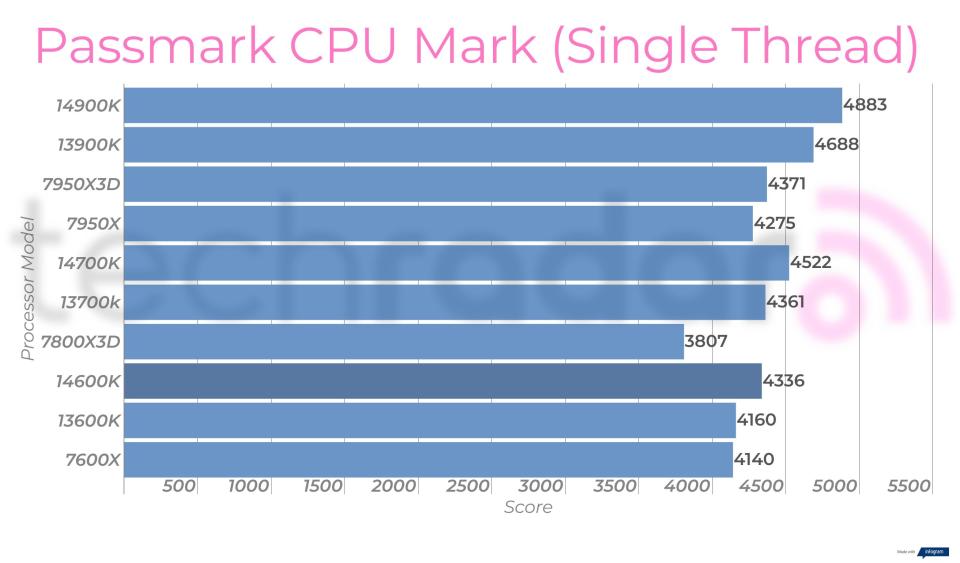
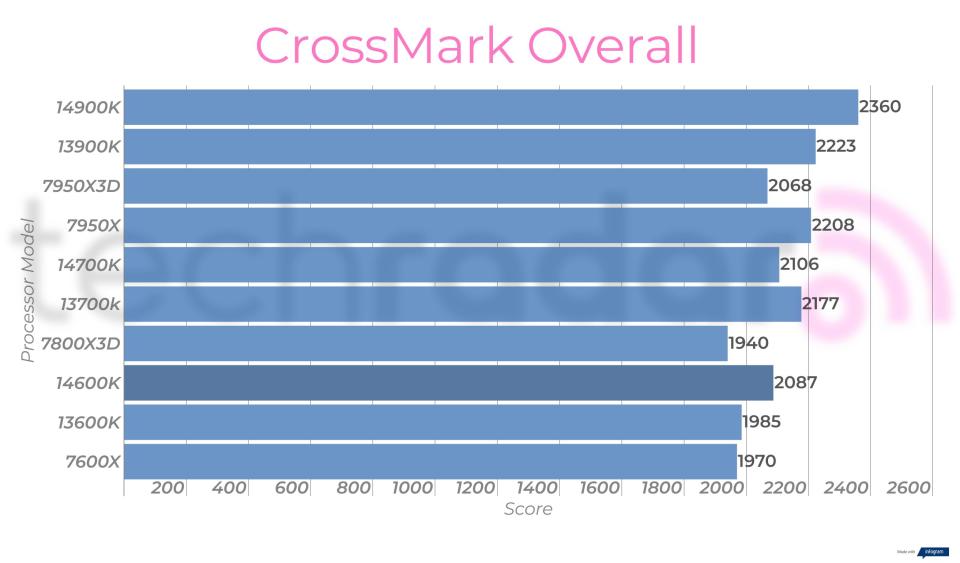
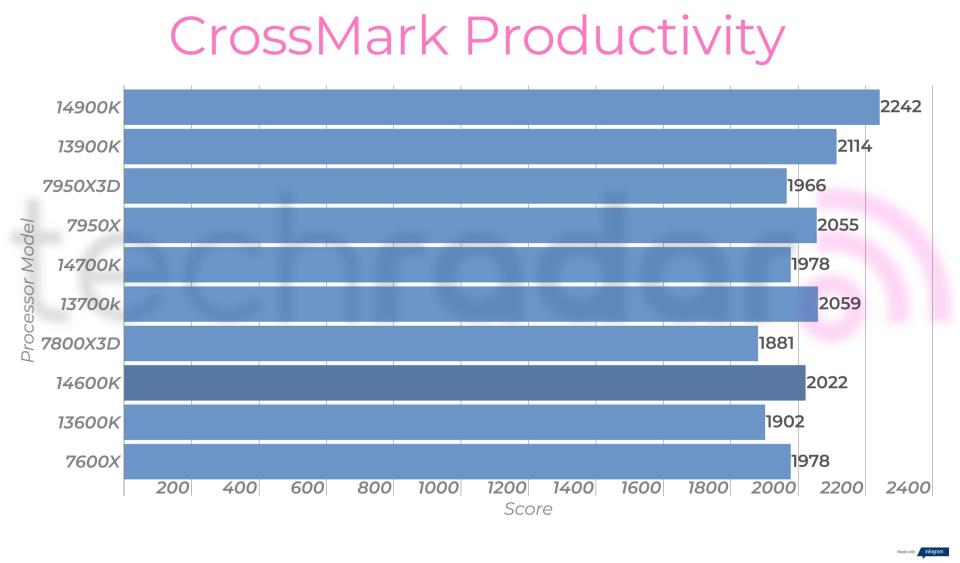
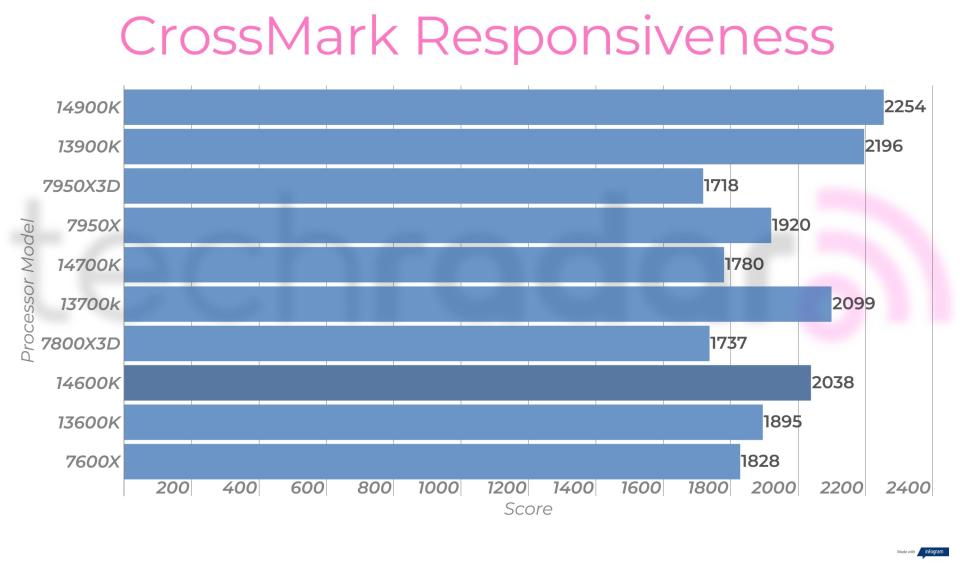
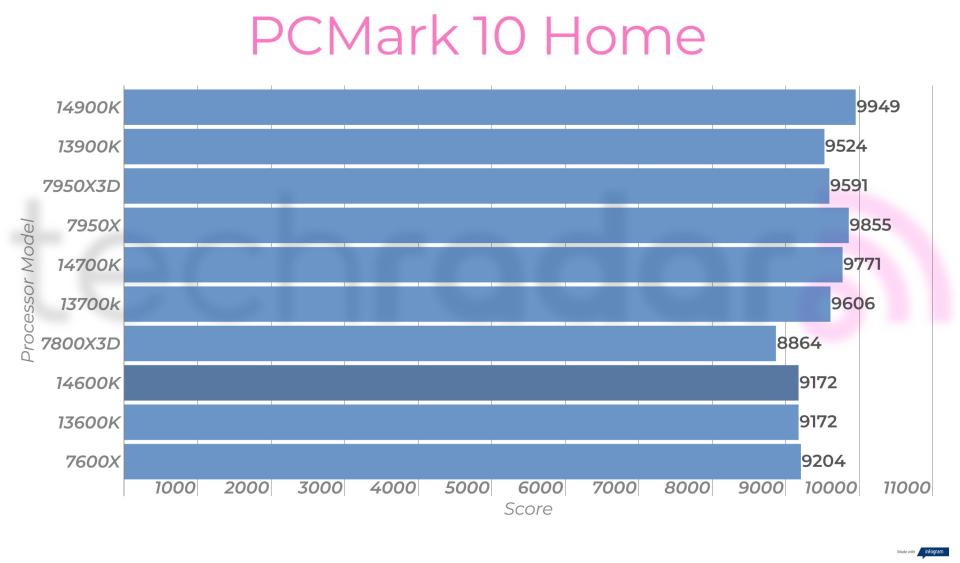
Looking at the chip's actual performance, the Core i5-14600K beats the AMD Ryzen 5 7600X and the Intel Core i5-13600K in single core performance, multi core performance, and with productivity workloads, on average. Other than its roughly 44% better average multi core performance against the Ryzen 5 7600X, the Core i5-14600K is within 3% to 4% of its competing chips.
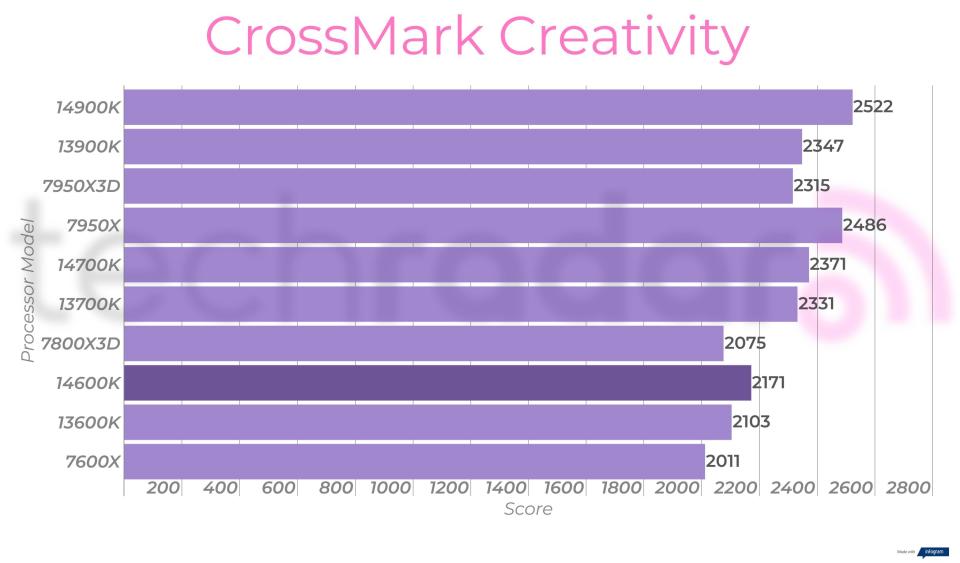
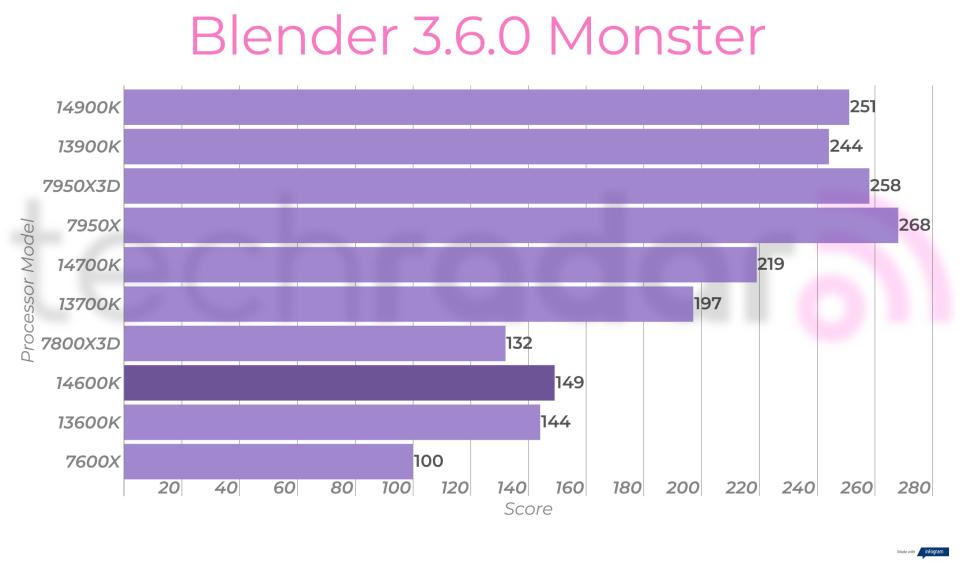
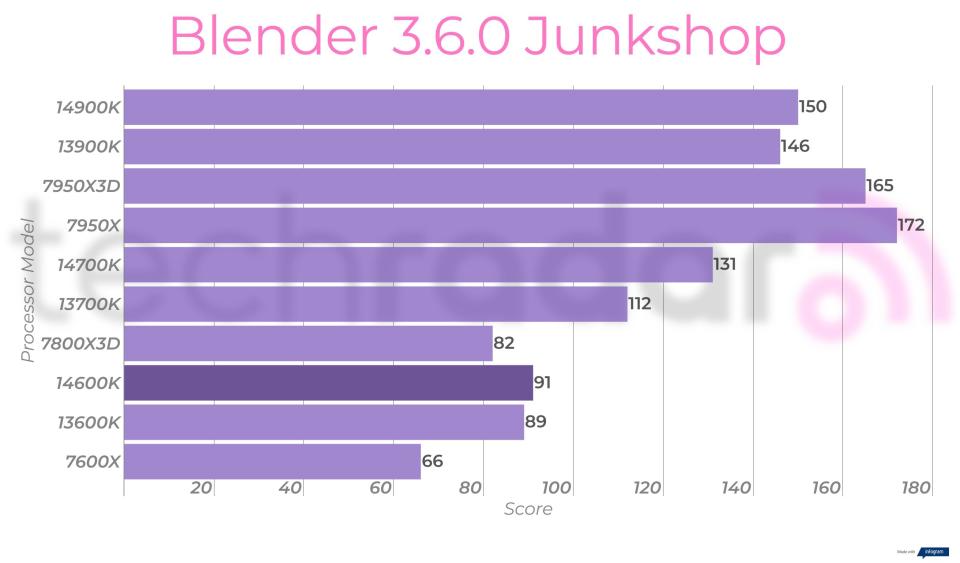

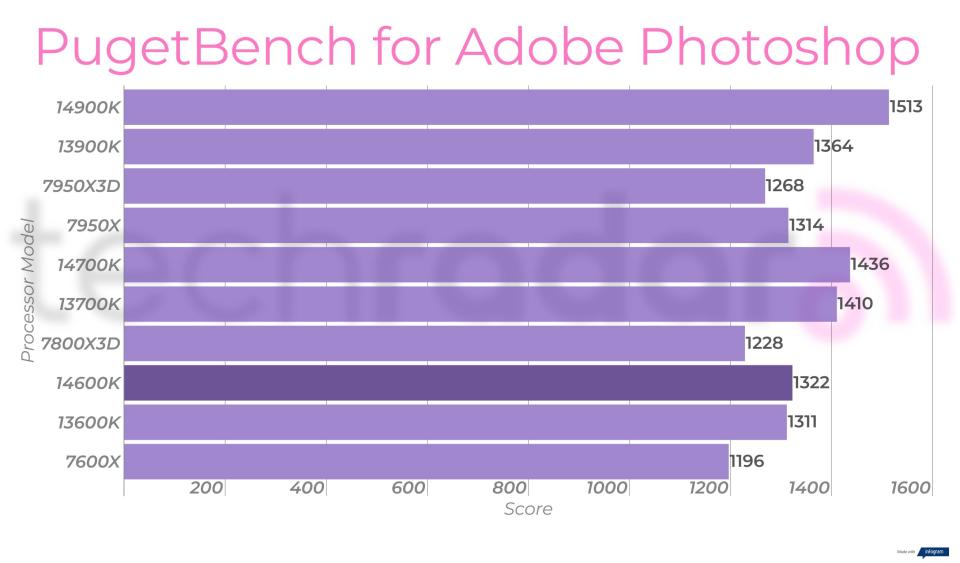
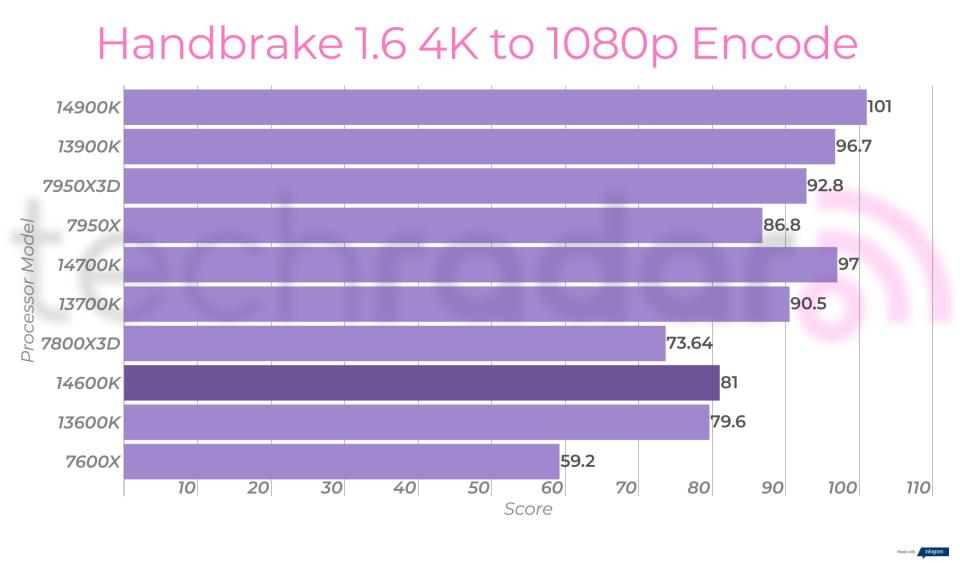

In creative workloads, the Core i5-14600K again manages to outperform the Ryzen 5 7600X by about 31% on average, but it's just 2.4% better than its predecessor, and none of these chips are especially great at creative content work. If you're messing around with family albums or cutting up TikTok videos, any one of these chips could do that fairly easily. For heavier-duty workloads like video encoding and 3D rendering, the Intel chips hold up better than the mainstream Ryzen 5, but these chips really aren't practical for that purpose.
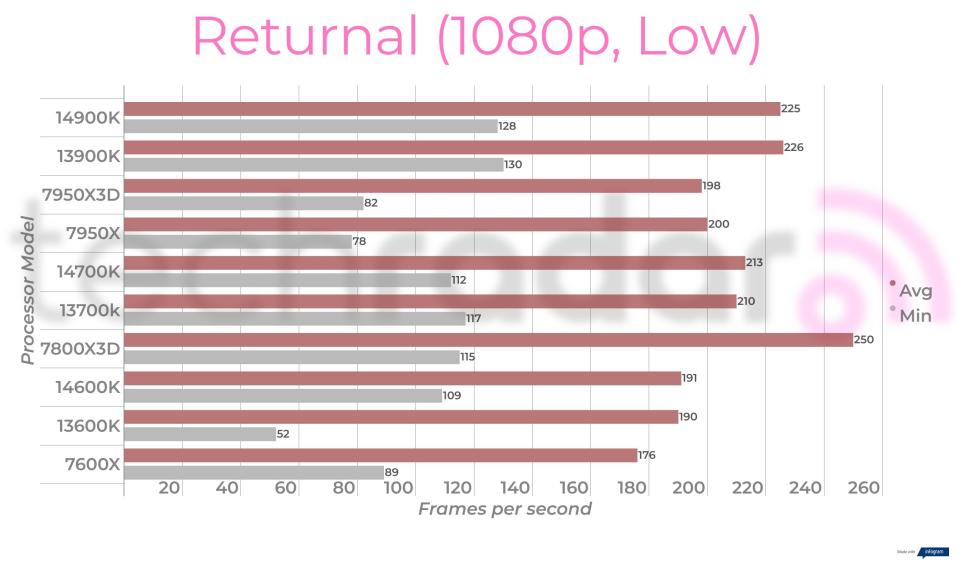
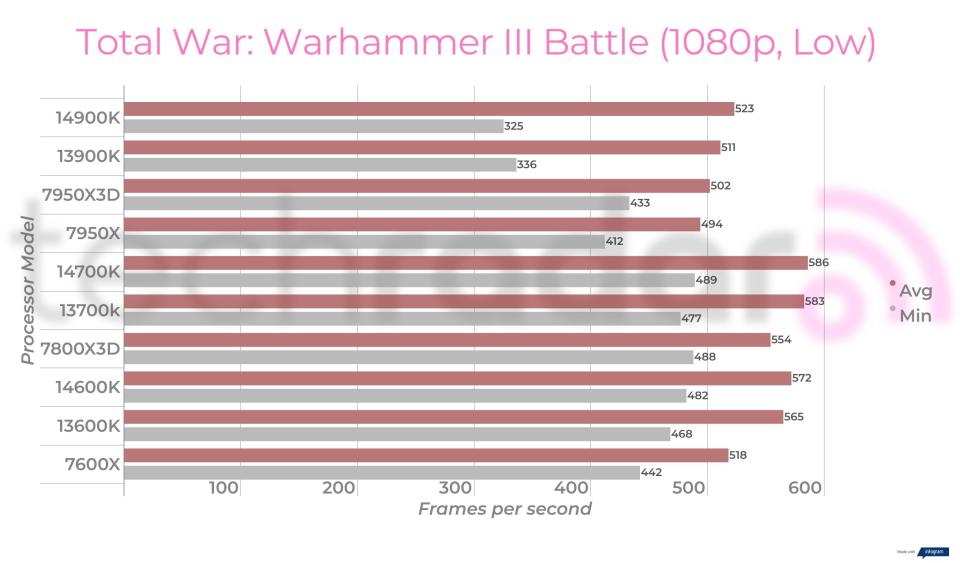
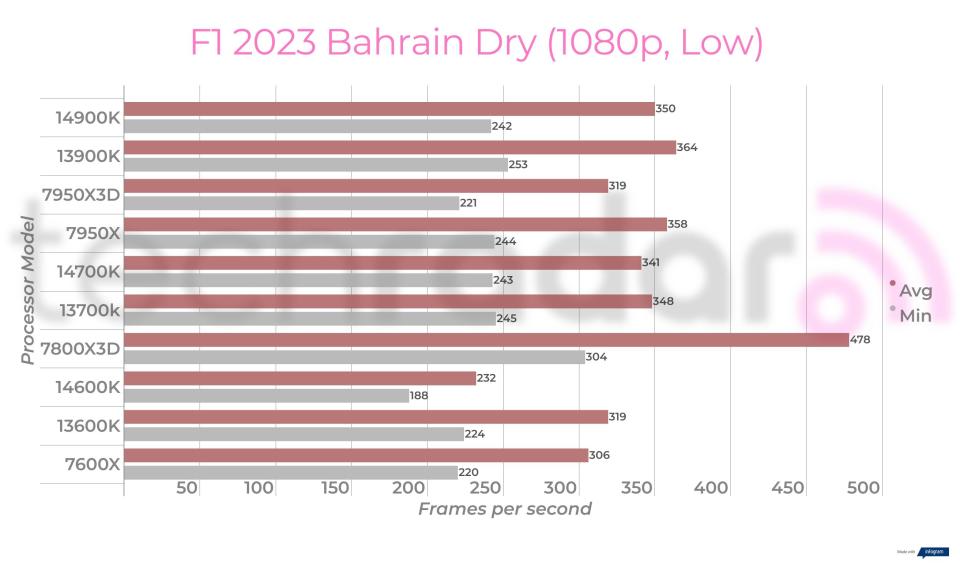
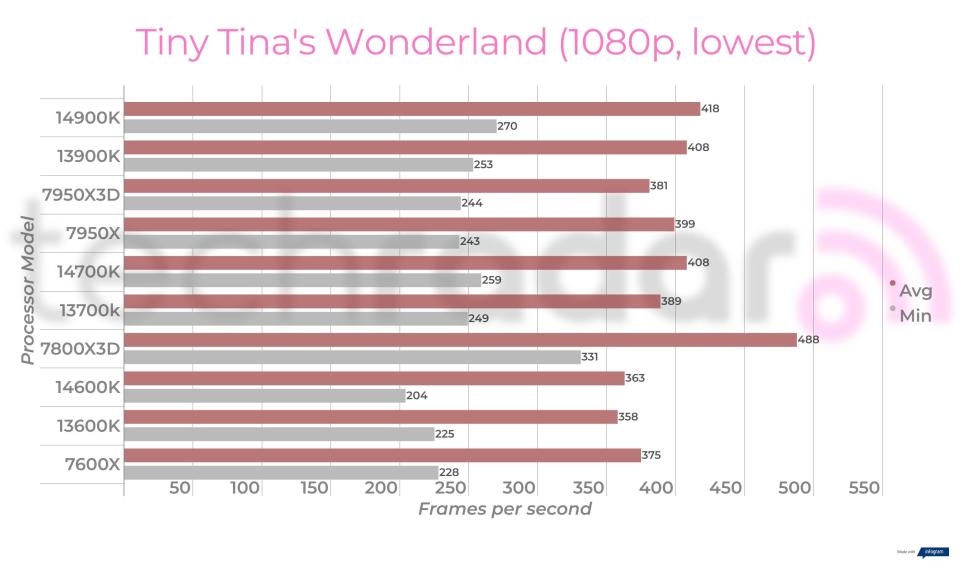
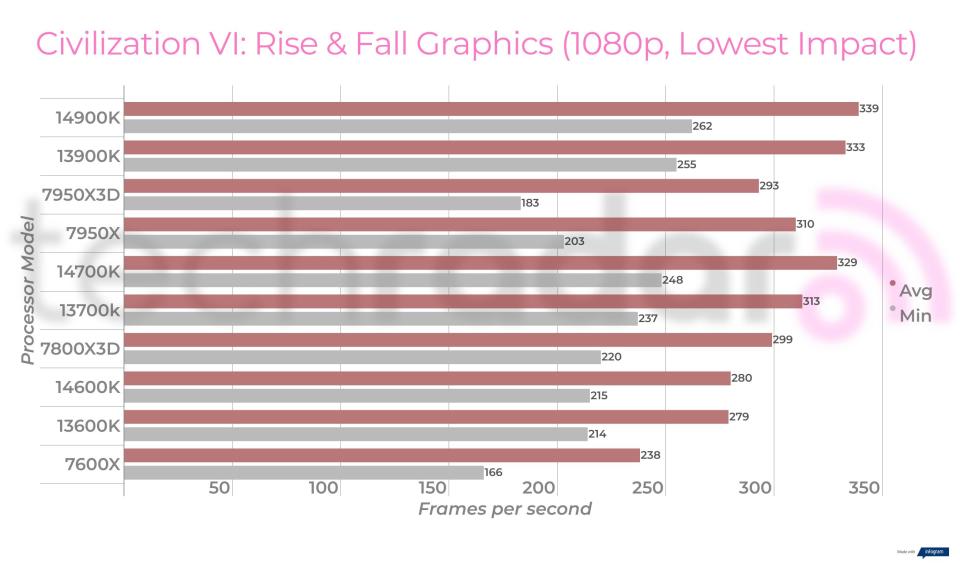
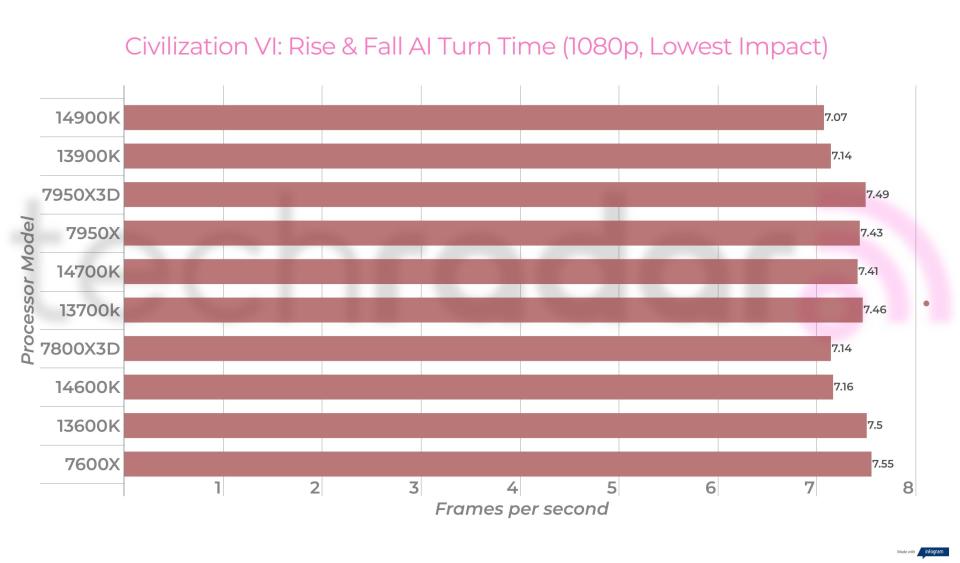
On the gaming front, it's more of the same, though now at least the Ryzen 5 7600X is back in the mix. Overall, the Core i5-14600K beats its 13th-gen predecessor and AMD's rival chip by about 2.1% and 3.2% respectively.
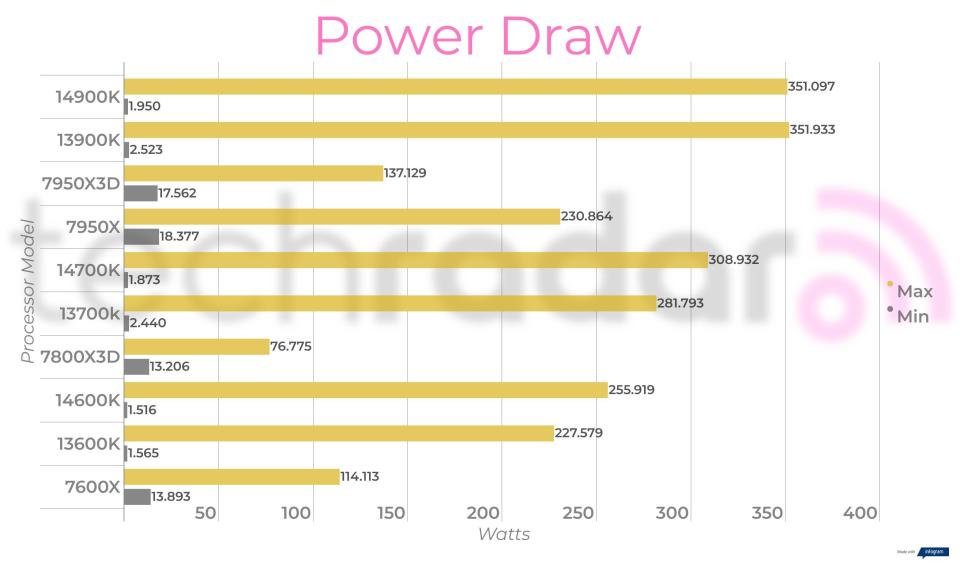

All of this comes at the cost of higher power draw and hotter CPU temperatures, though, which isn't good especially for getting so little in return. What you really have here is an overclocked i5-13600K, and you can do that yourself and save some money by buying the 13600K when it goes on sale, which is will.
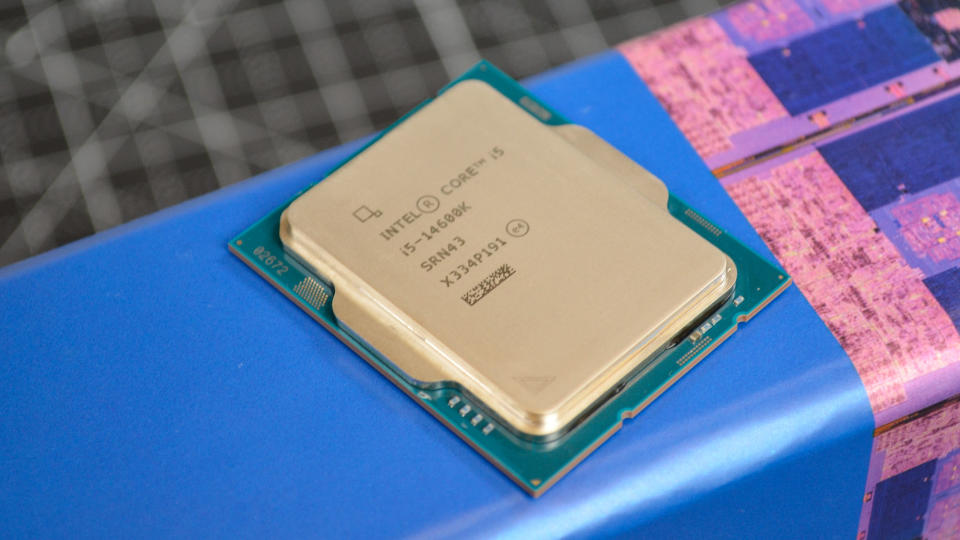
Intel Core i5-14600K: Price & availability
How much does it cost? US MSRP $319 (about £255/AU$465)
When is it out? October 17, 2023
Where can you get it? You can get it in the US, UK, and Australia
The Intel Core i5-14600K is available in the US, UK, and Australia as of October 17, 2023, for an MSRP of $319 (about £255/AU$465).
This is a slight $10 price drop from its predecessor, which is always good thing, and comes in about $20 (about £15/AU$30) more than the AMD Ryzen 5 7600X, so fairly middle of the pack price-wise.
In terms of actual value, as it goes to market, this chip has the highest performance for its price of any chip in any product tier, but only by a thin margin, and one that is sure to fall very quickly once the price on the 13600K drops by even a modest amount.
Intel Core i5-14600K: Specs
Intel Core i5-14600K: Verdict
Best performance for the price of any chip tested...
...but any price drop in the Core i5-13600K will put the 14600K in second place
Not really worth upgrading to with the Core i7-14700K costing just $90 more
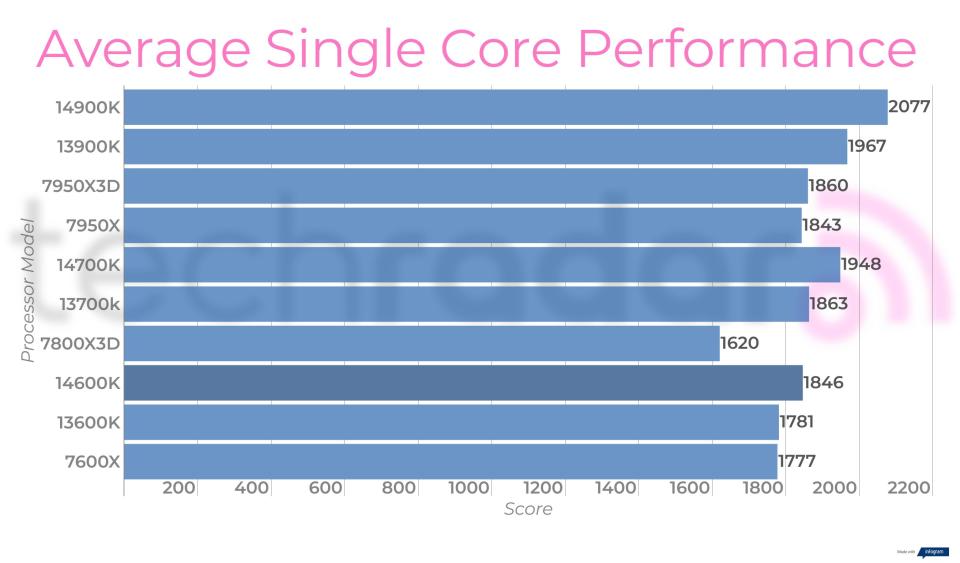
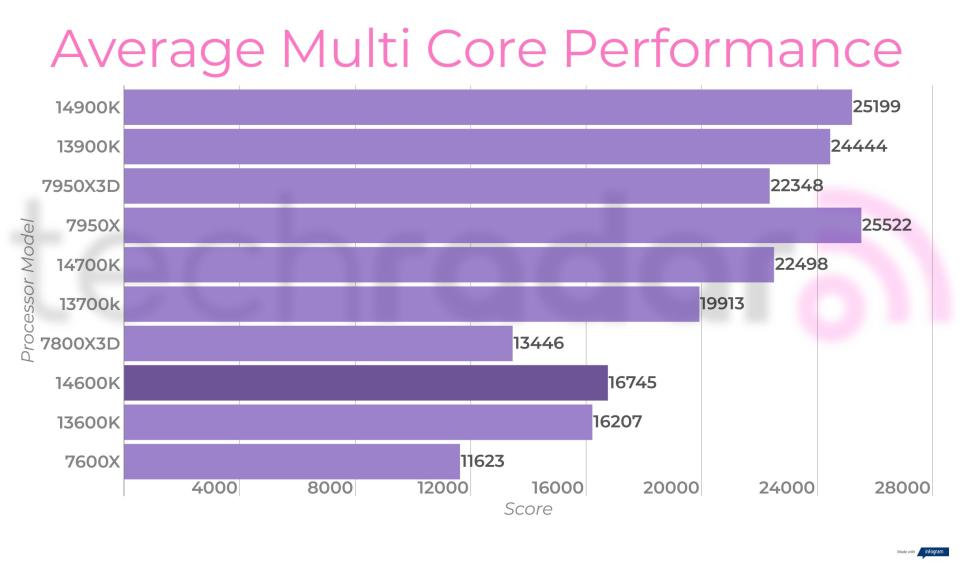
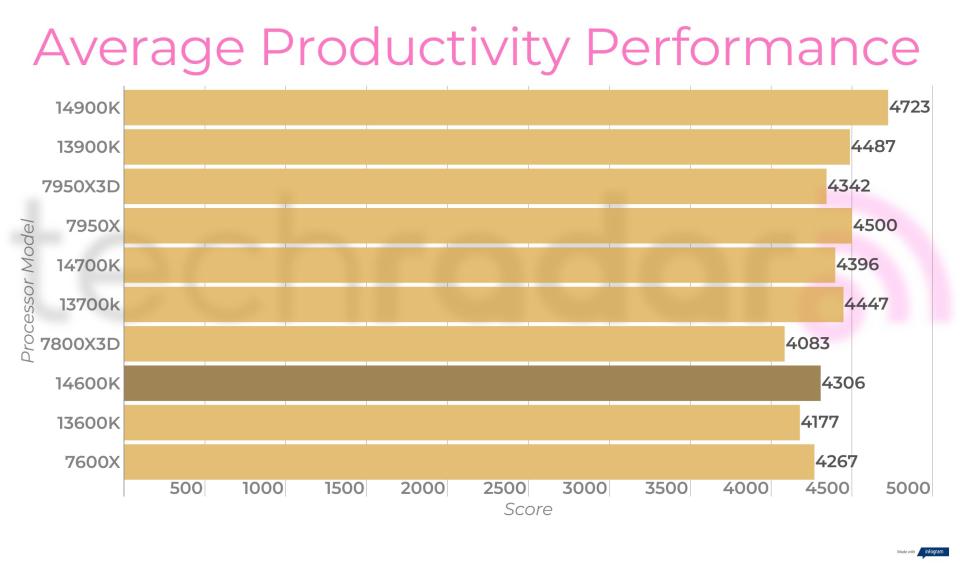
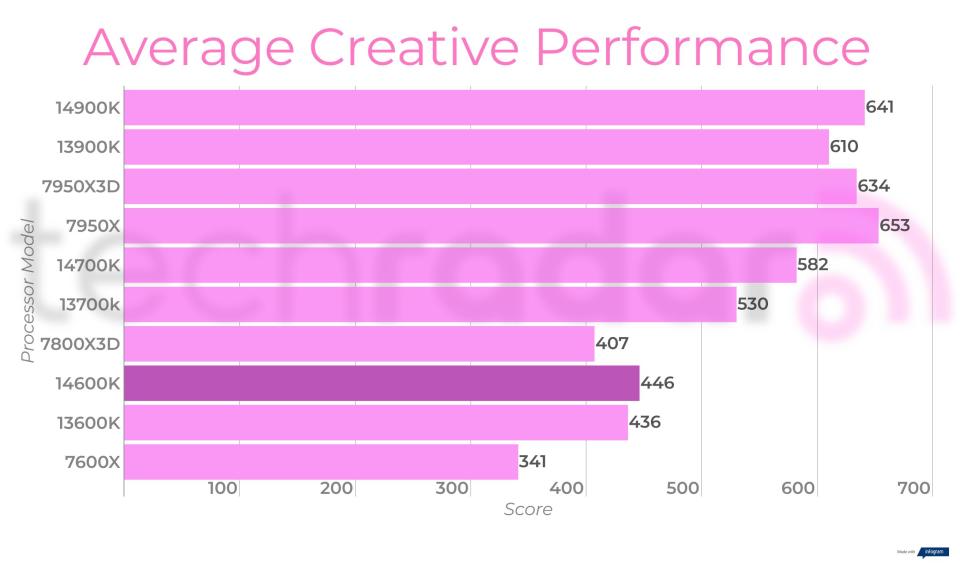
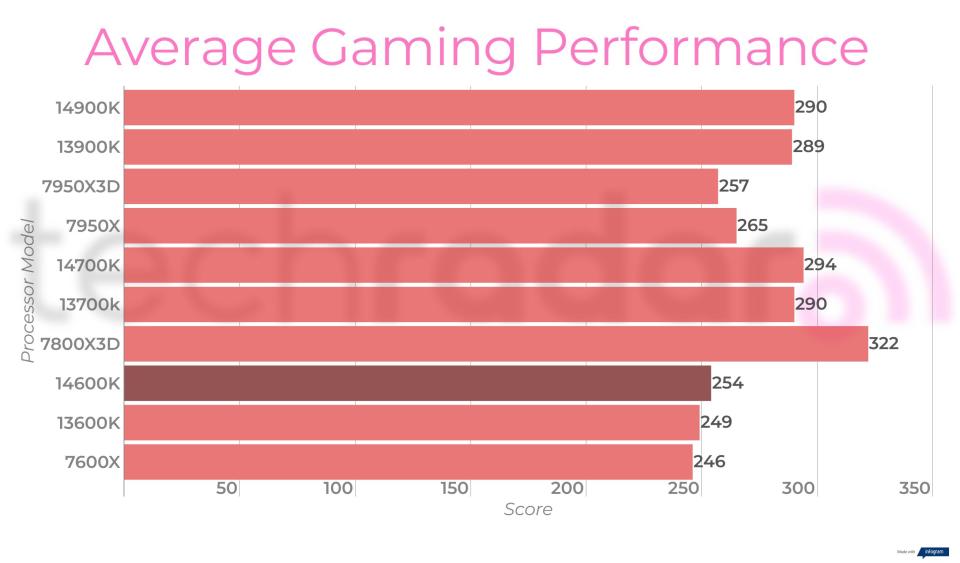
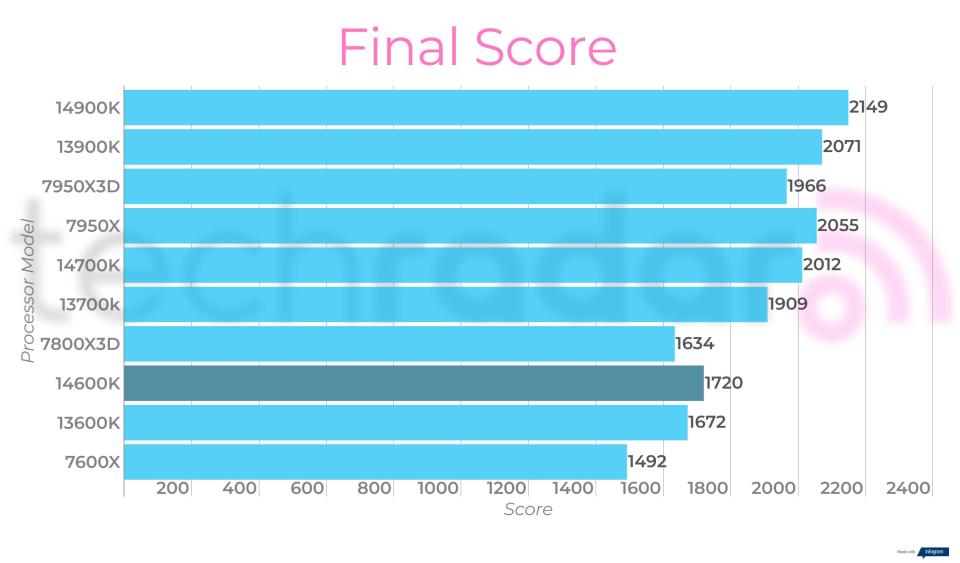
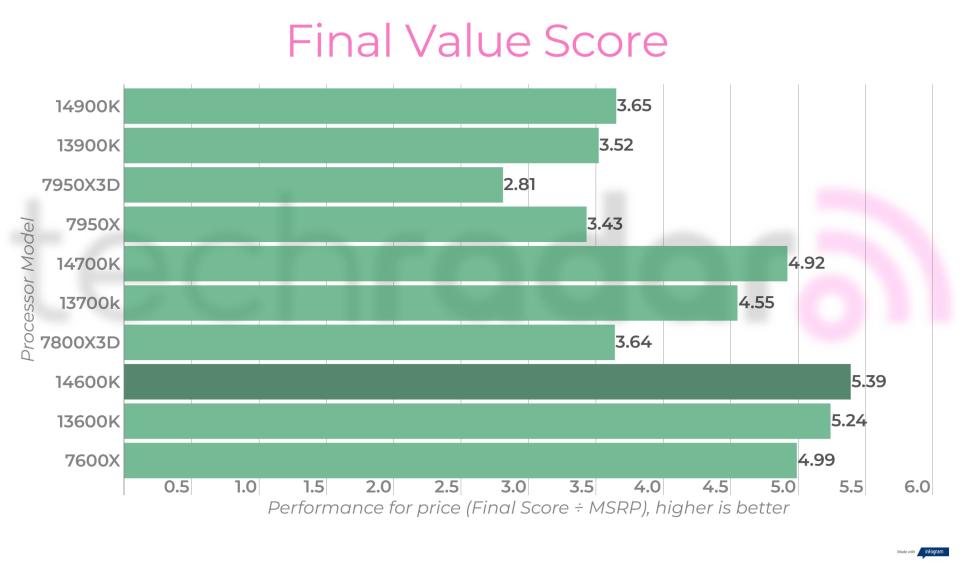
Ultimately, the market served by this chip specifically is incredibly narrow, and like the rest of the Raptor Lake Refresh line-up, this is the last hurrah for the Intel LGA 1700 socket.
That means if you go out and buy a motherboard and CPU cooler just for the 14th-gen, it's a one time thing, since another generation on this platform isn't coming. It doesn't make sense to do that, so, if you're upgrading from anything earlier than the 12th-gen, it just makes so much more sense to wait for Meteor Lake to land in several months time and possibly get something really innovative.
If you're on a 12th-gen chip and you can't wait for Meteor Lake next year, the smartest move is to buy the i7-14700K instead, which at least gives you i9-13900K-levels of performance for just $90 more than the i5-14600K.
Ultimately, this chip is best reserved for prebuilt systems like the best all-in-one computers at retailers like Best Buy, where you will use the computer for a reasonable amount of time, and then when it becomes obsolete, you'll go out and buy another computer rather than attempt to upgrade the one you've got.
In that case, buying a prebuilt PC with an Intel Core i5-14600K makes sense, and for that purpose, this will be a great processor. But if you're looking to swap out another Intel LGA 1700 chip for this one, there are much better options out there.
Should you buy the Intel Core i5-14600K?
Buy the Intel Core i5-14600K if...
Don't buy it if...
Also Consider
If my Intel Core i5-14600K review has you considering other options, here are two processors to consider...
How I tested the Intel Core i5-14600K
I spent nearly two weeks testing the Intel Core i5-14600K
I ran comparable benchmarks between this chip and rival midrange processors
I gamed with this chip extensively
Test System Specs
These are the specs for the test system used for this review:
Intel Motherboard: MSI MPG Z790E Tomahawk Wifi
AMD Motherboard: Gigabyte Aorus X670E Extreme
CPU Cooler: MSI MAG Coreliquid E360 AIO
Memory: 32GB SK Hynix DDR5-4800
SSD: Samsung 990 Pro
PSU: Thermaltake PF3 1050W ATX 3.0
Case: Praxis Wetbench
I spent about two weeks testing the Intel Core i5-14600K and its competition, primarily for productivity work, gaming, and content creation.
I used a standard battery of synthetic benchmarks that tested out the chip's single core, multi core, creative, and productivity performance, as well as built-in gaming benchmarks to measure its gaming chops.
I then ran the same tests on rival chips from AMD as well as the other 14th-gen chips in the Raptor Lake Refresh launch lineup and 13th-generation Raptor Lake processors. For Intel chips, I used the same motherboard, RAM, SSD, and graphics card to ensure I was isolating just the CPU's performance across every chip. For AMD chips, I used a comparable AM5 motherboard so differences in the motherboard configuration and circuitry are mitigated to the largest extent possible.
I've been testing and reviewing computer hardware for years now, and with an extensive background in computer science, I know processors in and out, and I use that knowledge to ensure every chip is thoroughly tested.
We pride ourselves on our independence and our rigorous review-testing process, offering up long-term attention to the products we review and making sure our reviews are updated and maintained - regardless of when a device was released, if you can still buy it, it's on our radar.
First reviewed October 2023


